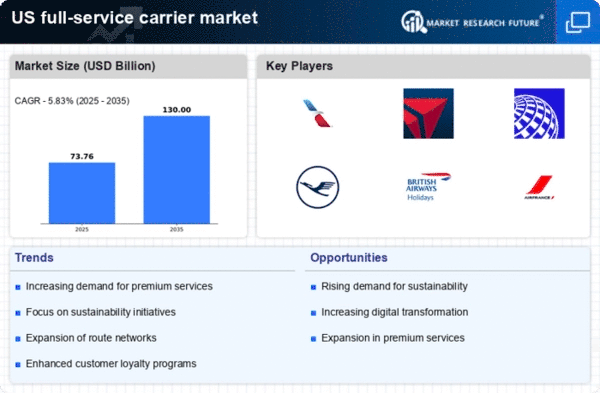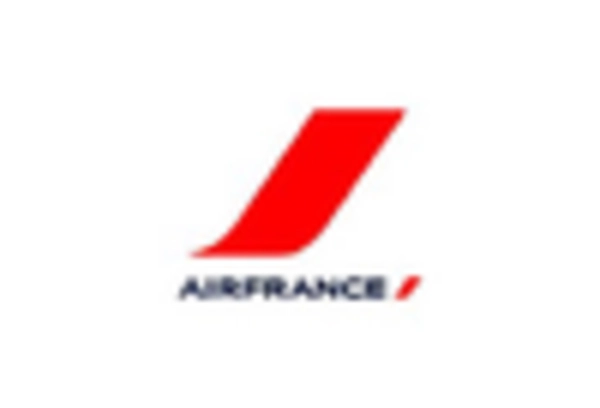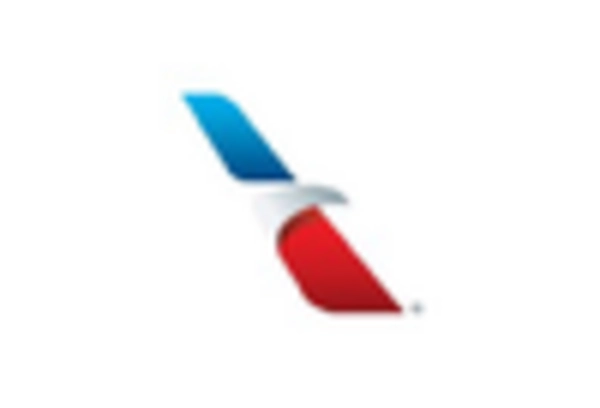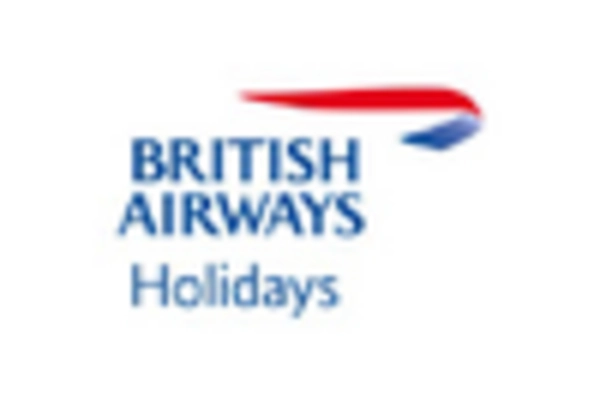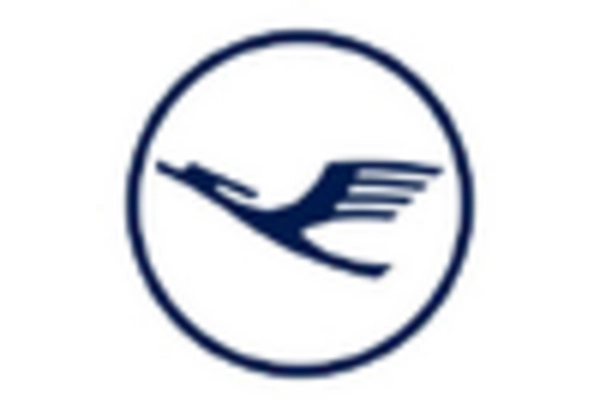Rising Demand for Air Travel
The full service-carrier market is currently experiencing a notable increase in demand for air travel, driven by a resurgence in consumer confidence and economic stability. As disposable incomes rise, more individuals are opting for air travel, leading to a projected growth rate of approximately 5% annually in passenger numbers. This trend is particularly evident in the business travel segment, which has shown a robust recovery. Airlines are responding by expanding their routes and increasing flight frequencies, thereby enhancing their service offerings. The full service-carrier market is likely to benefit from this growing demand, as carriers invest in fleet modernization and improved customer service to attract and retain passengers.
Competitive Pricing Strategies
In the full service-carrier market, competitive pricing strategies are becoming increasingly vital as airlines seek to differentiate themselves in a crowded marketplace. Carriers are implementing dynamic pricing models that adjust fares based on demand fluctuations, which can lead to more attractive pricing for consumers. This approach has been shown to increase load factors, with some airlines reporting improvements of up to 10% in seat occupancy rates. Additionally, promotional fare offerings and bundled services are being utilized to enhance value propositions. The full service-carrier market is thus witnessing a shift towards more consumer-friendly pricing, which may drive further growth and market share expansion.
Focus on Ancillary Revenue Streams
The full service-carrier market is increasingly focusing on ancillary revenue streams as a means to bolster profitability. Airlines are diversifying their revenue sources by offering additional services such as priority boarding, extra baggage, and in-flight entertainment options. This strategy has proven effective, with ancillary revenues contributing to as much as 20% of total revenue for some carriers. The emphasis on these additional services not only enhances the customer experience but also provides airlines with a buffer against fluctuating ticket prices. As the full service-carrier market evolves, the ability to effectively monetize ancillary services will likely play a crucial role in financial sustainability.
Technological Integration in Operations
The integration of advanced technologies is reshaping the operational landscape of the full service-carrier market. Airlines are increasingly adopting digital solutions such as artificial intelligence and data analytics to optimize flight operations and enhance customer service. For instance, predictive maintenance technologies are being utilized to reduce aircraft downtime, potentially saving millions in operational costs. Furthermore, the implementation of mobile applications for customer engagement is becoming standard practice, allowing for seamless booking and check-in processes. The full service-carrier market appears poised for transformation as these technological advancements continue to streamline operations and improve overall efficiency.
Regulatory Compliance and Safety Standards
Regulatory compliance and adherence to safety standards are paramount in the full service-carrier market, particularly in the wake of heightened scrutiny from aviation authorities. Airlines are investing significantly in safety protocols and training to ensure compliance with Federal Aviation Administration (FAA) regulations. This focus on safety not only protects passengers but also enhances the reputation of carriers within the industry. The full service-carrier market is thus compelled to maintain rigorous safety measures, which may involve substantial financial outlays. However, these investments are likely to yield long-term benefits in terms of customer trust and loyalty.


